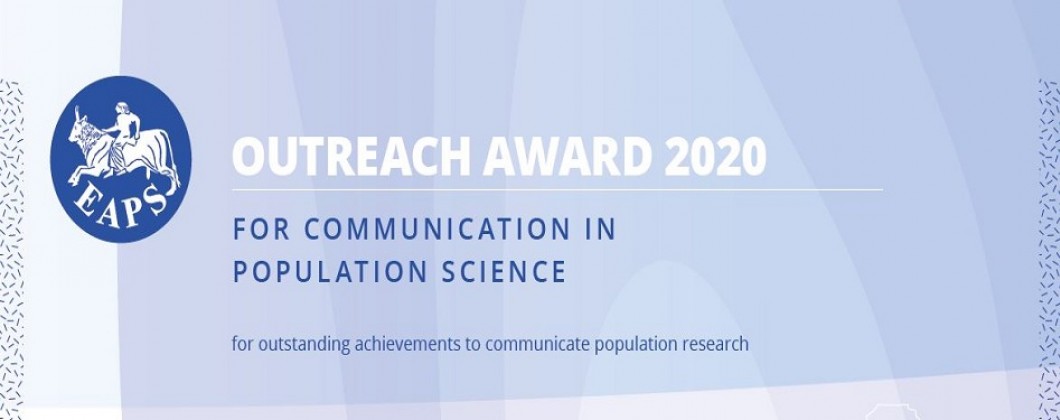EAPS Open Science and Outreach Award for Population Studies

This Award honors outstanding contributions to Open Science, including transparency and reproducibility of research and the accessibility of data, as well as distinguished efforts to communicate and share the scope, impact and outcomes of population studies with audiences within and outside academia.
Open Science practices that can be considered include Open Access publications, data collection and data sharing, research data availability, respect of FAIR principles, code reproducibility, dissemination of Open Science practices (such as teaching courses and workshops), outreach to citizens and the public, as well as to policy makers.
Nominations for this Award can be made up to two months before the start of a European Population Conference. The next deadline 1 April 2026!
Rules of Play
- The Award is open to all levels of seniority.
- Candidates are individual scholars or teams who are members of EAPS at the time of nomination.
- Candidates should be nominated by a member of EAPS; nominations should be supported by at least 3 additional members of EAPS residing in at least two different countries.
- Candidates may also nominate themselves for this award; self-nominations should be supported by at least 3 additional members of EAPS residing in at least 2 different countries.
- The Jury may invite nominations as well.
- Nominations should include a short (maximum one page) explanatory statement, a curriculum vitae of the candidate, and a list of members who support the nomination.
- Nominations should be sent to EAPS (eaps@nidi.nl) and will be treated confidentially.
- The Council of EAPS appoints an independent Jury for this Award.
- The Jury consists of at least three members of EAPS, one of whom will act as Chair.
- The Jury is free to organize its work as it deems appropriate and follows generally accepted scientific principles and criteria.
- The Jury will account for years of experience and for justified leave periods.
- Jury proceedings are confidential. The Jury submits a written report to the EAPS Council indicating the successful laureate and the motivation of the Jury.
- The Award will be presented at the European Population Conference.
- The EAPS Open Science and Outreach Award comes with a Euro 1000 cash benefit and a Certificate.
Laureates
2024
Daniela Vono de Vilhena, Population Europe, Germany
2020
Liili Abuladze, Tallinn University, Estonia
2018
Tim Riffe & Ilya Kashnitsky, Max Planck Institute for Demographic Research MPIDR, Germany
